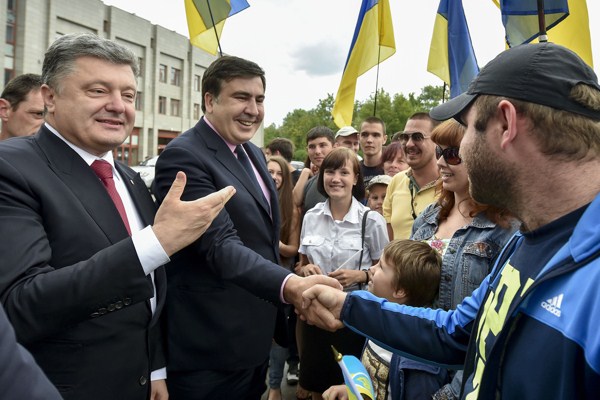Ukrainian President Petro Poroshenko, elected last year after his pro-Russian predecessor Viktor Yanukovych was overthrown in the Maidan uprising, delivered his first annual message to Parliament yesterday. In it, he denounced the country’s pervasive corruption and called for significant reforms, while also accusing Russia of violating the Minsk agreement that established a cease-fire in embattled eastern Ukraine in February.
Poroshenko, a billionaire whose business history drew suspicion from the U.S. State Department before he took office, may seem to be an unlikely reformer. His recent battles with Ukraine’s powerful oligarchs are ostensibly about establishing the rule of law, both to strengthen the state and to attract support from Western capitals and financial institutions. But corruption in Ukraine, as in other former Soviet republics, is never so black and white, given how difficult it is for anyone to reach an influential position in politics or business without getting their hands dirty.
Last week, Poroshenko made international headlines by appointing Mikheil Saakashvili, the former president of Georgia, as the governor of the Odessa region—granting him Ukrainian citizenship in the process. Odessa, Ukraine’s third-largest city and main port, is a notoriously corrupt hub of organized crime. It also serves as a vital conduit to Transnistria, the Russian-backed breakaway region in neighboring Moldova, which Ukraine and Moldova are currently trying to embargo. By appointing Saakashvili, who in the early 2000s drew significant Western support for his efforts to liberalize Georgia and root out corruption, and who still has many well-placed friends in Washington, Poroshenko is trying to signal to the West that he’s serious about cleaning up Odessa.

